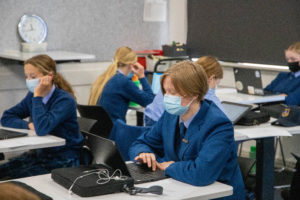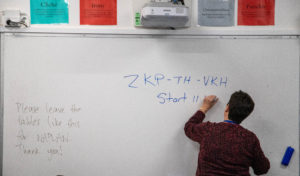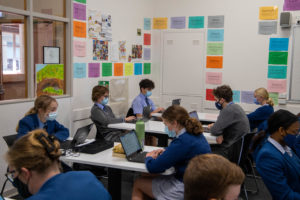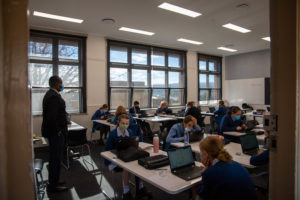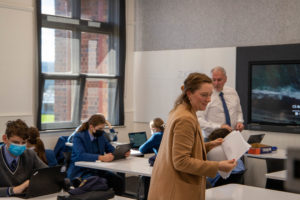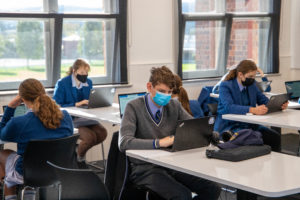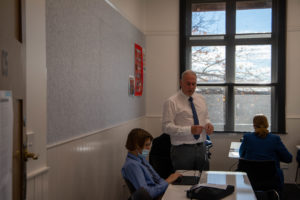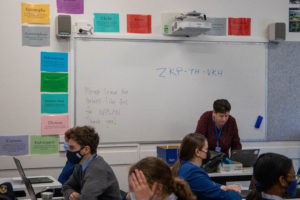As many of our parents will know, it is NAPLAN time. Students in Grades 3, 5, 7 and 9 will undergo assessments in reading, writing, language conventions and numeracy. NAPLAN is not a test that you win or lose, pass or fail, but some children can still be nervous during these times. You can help to support your children during this time by ensuring that they are well-rested ahead of a busy day, hydrated, and have spent some time outside. In addition, the school offers a range of support for our students.
The Senior Campus experience has a strong focus on Pastoral Care. In Grade 7, students are placed in Core Classes, each of which is both the vehicle for the delivery of the Pastoral Programme and a learning unit. Students are also allocated to Houses (Fraser, Gillett, Roff, Savigny and Wilkinson). One role of the house system is to provide the mechanism for internal competitions in which all students participate. The major role of the house system, though, is to provide pastoral care for students in Grades 8 to 12.
All staff involved with our pastoral programme have undergone Growth Coaching training. This is to ensure all staff have a uniform approach to supporting students in setting goals. A key component underpinning our work with students is helping them navigate a pathway through the school years and beyond. Growth coaching provides a framework to help students achieve their best.
Upon entry to Grade 8, students are placed in Tutor Groups within each house. There are 15-20 students in each group. Tutors meet with their group prior to normal lessons each morning and undertake administrative tasks. They meet for an additional two or three periods of 20 minutes duration each week. At various times throughout the year, tutors provide support in common areas such as revision for examinations, subject selection, goal setting, time management, etc. Tutors provide counselling to individual students where necessary.
Launceston Grammar also has on staff both a school counsellor and a school psychologist. The school counsellor is a professional practitioner who provides a free confidential counselling and support service to students and their families around a wide range of issues. These may include mental health difficulties, risk assessment, conflict resolution, grief and loss, stress management and relationship issues. The school will also liaise with parents and external agencies where appropriate, to better assist and support students. The service can be accessed directly by families, students or referred through House Heads.
The school psychologist is a registered practitioner who can provide developmental, cognitive and educational assessments to assist learning, engagement and positive outcomes for students. The school psychologist works in collaboration and consultation with staff, school, parents and other professionals and agencies and can assist with learning plans and educational adjustments. Generally, students are referred by teaching staff but parents may contact the school if they wish to arrange a referral.
Our aim is to create a community where global learners and leaders are nurtured, challenged and inspired to serve and shape our world with courage, curiosity, creativity and compassion.




